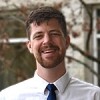President Signs STEM Education Bill Into Law
President Obama yesterday signed into law the STEM Education Act of 2015. The law has three parts: it (1) expands research and training opportunities for math and science teachers through a prominent National Science Foundation (NSF) scholarship program, (2) boosts research in informal STEM education at the NSF, and (3) explicitly incorporates computer science into the definition of STEM education for federal purposes. The bill received largely bipartisan support, although one prominent Member of Congress expressed concern that a broader definition of STEM education had not been used.
With a unanimous consent motion in the Senate and near unanimous support in the House, Congress sent H.R. 1020 to President Obama’s desk for his signature on October 1. The law authorizes NSF to continue its focus on the informal and out-of-school STEM learning activities and environment. It also amends the NSF Robert Noyce Master Teaching Fellowship
The law also explicitly includes computer science in the definition of STEM for the purpose of carrying out STEM education activities at key federal agencies. The singling out of computer science among other disciplines that could also have been included was of concern to Rep. Eddie Bernice Johnson (D-TX), the Ranking Member of the House Committee on Science, Space, and Technology. She would have preferred that broader language inclusive of the geosciences and social sciences had been used. As she explained on the House floor in February:
“I rise in support of H.R. 1020—although, reluctantly, I must qualify my support. [A broader] definition…this entire House agreed to last year…[would leave] the door open for other critical fields such as statistics and geology that don’t cleanly fit into STEM or STEM in K–12 teacher certifications and curricula…. I think we can all agree to the importance of computer science education…. However, it baffles me as to why we would implicitly devalue such fields as statistics and geology in order to highlight computer science.”
“Unfortunately, America lags behind many other nations when it comes to STEM education…. A healthy and viable STEM workforce literate in all STEM subjects, including computer science, is critical to American industries. A well-educated and trained STEM workforce ensures our future economic prosperity. More graduates with STEM degrees means more advanced technologies and a more robust economy.”
“The STEM Education Act is a good starting point to ensure that federal education and workforce programs are aligned with the needs of today’s students and our future economy… This targeted legislation will broaden the definition of the STEM subjects to include computer science, bolster research at the National Science Foundation on how students can learn STEM subjects in informal and out-of-school settings, and offer more educators in STEM fields a chance to compete for the prestigious Noyce Teacher Fellowship.”


